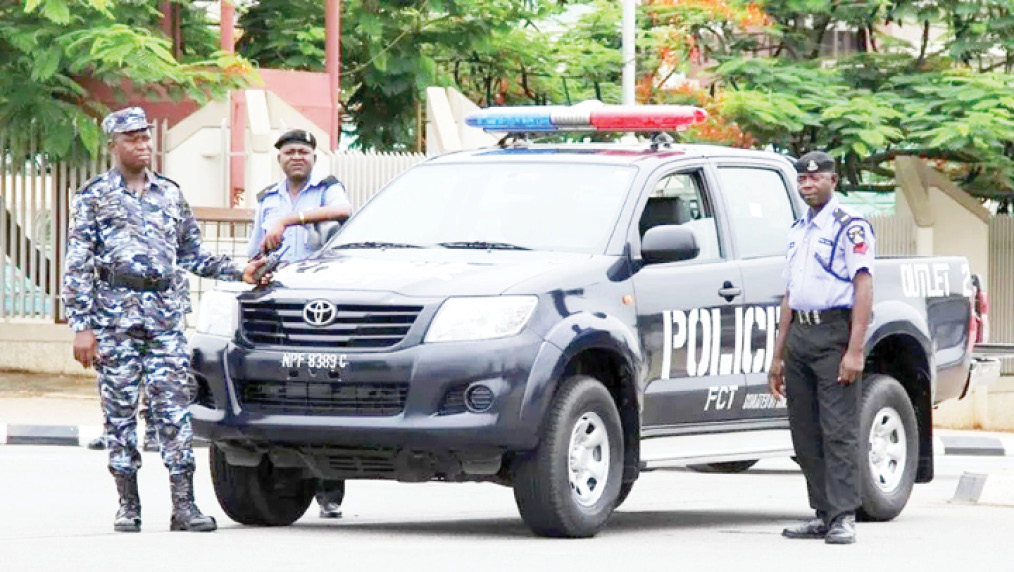Last week, lawmakers in the House of Representatives considered the wearing of cameras for all security operatives, particularly for the officers of the Nigerian Police Force whose main mandate is maintaining the internal security of the country.
The lower legislative chamber passed a motion urging the executive to make it compulsory for all operatives to wear cameras while on duty as part of efforts to tackle corrupt practices in the business of law enforcement.
- Senate to FG: Declare terrorists’ leaders wanted
- 80% of military personnel performing police duties in 36 states – CDS
The green chamber, in a resolution during its plenary session following the adoption of a motion sponsored by Chinedu Emeka, a lawmaker from Imo State, also directed security agencies to establish situation rooms to monitor and coordinate the footage.
Emeka, in his submission, explained that the cameras would prevent security operatives from engaging in unprofessional practices.
The Imo lawmaker said, “Security agencies have been exploring solutions to mitigate the growing insecurity in the country, especially considering the lack of adherence to rules of engagement on the part of security operatives on duty.
“A body camera is a wearable audio-visual or photographic system which integrates with in-car video, and used to record events involving law enforcement officers in order to improve transparency and accountability of law enforcement agencies.”
Specifically, the legislator centred his motive on the allegations of harassment, extortion and extra-judicial killings of citizens by security operatives which he said “often result in reprisals and uprising by the citizens.”
He said it was expedient for many scenes regarding the aforementioned allegations to be recorded, in order to help the dispensation of accurate judgment in the court of law.
“Security operatives, who often experience litigious scrutiny over their conduct in the discharge of their duties, ought to wear body cameras in order to have picture and video evidence of their activities.
“The body cameras will keep the security operatives in check, considering the massive allegations of human rights violation by security operatives and lack of evidence to indict them.
“The introduction of body cameras will not only douse tension and promote trust and professionalism among the security agencies but will also institutionalise the rules of engagement to foster a harmonious relationship between security operatives and the citizenry.”
According to available reports, allegations of rights abuses and harassment are more pronounced among officers of the Nigerian Police Force – a situation on which many stakeholders have been calling for drastic action.
Expectedly, shortly after the plenary, the media, both online and offline, buzzed as reactions trailed the legislators’ move to tackle allegations of untoward attitude by security operatives in their interaction with members of the public.
The motion was put to a voice vote by Idris Wase, deputy speaker of the house. Subsequently, the house mandated the committees on police affairs, army and national security and intelligence to ensure compliance.
A cross-section of Nigerians including some senior retired security agents, who spoke to Daily Trust, aligned with the argument that the body cameras would prevent security operatives from engaging in unwholesome and unprofessional practices, but with some reservations.
Many recalled that in 2020, major parts of the country were locked down by aggrieved protesters, under #EndSARS slogan, to show displeasure of harassment of innocent Nigerians by the police attached to the defunct Special Anti-Robbery Squad (SARS).
FRSC, Lagos acted before Reps, yet no implementation
The Federal Road Safety Corps (FRSC) and the Lagos State government had unveiled the same body cameras even before Emeka’s motion was adopted.
In October 20, 2021, the FRSC also unveiled an operation monitoring and control platform, to improve the corps’ field operations across the country.
The Corps Marshal, Boboye Oyeyemi, at the official inauguration in Abuja, said the platform would improve transparency and accountability in the activities of the corps nationwide.
He added that it was designed with the needs for the public uppermost in mind, as the corps goes about the task of making FRSC more responsive in operations.
The FRSC boss noted that it was evidence of a fostered innovation to tackle challenges in patrol operations and its strong commitment to surmount all obstacles in delivering on its mandate.
“This platform will embrace the ethical imperatives of eliminating misconducts both on the part of the operatives and motorists. It will considerably reduce the incentive to infringe on traffic laws and regulations due to perceived weak enforcement and likelihood of escaping arrest,” he said.
Four months down the line, residents of the FCT who were interviewed told our reporter that the officials of FRSC have not been kitted with the camera as promised by the Corps Marshal.
Ahmed Abubakar said, “I heard on radio that the road safety officers would be wearing the camera but I have not seen any of them with the device. Or maybe it is hidden, but I doubt it would be implemented.”
Another resident, Mrs Josephine Olojede, admonished the federal government not to be announcing what they would not do in the media before it is done, adding that, “This makes citizens’ hope dashed. It is not good.”
How do body cameras add value to the Nigerian policing system?
Speaking to Daily Trust, a former Commissioner of Police in the Federal Capital Territory, Lawrence Alobi, questioned the values of body cameras without resetting orientation among security agents and Nigerian citizens.
“Even in the United States of America and the United Kingdom, sometimes, there are human rights abuses; people have differences. It is also based on orientation and training.
“The most important thing is the character of the police officers and citizens in the society. Nigerian society is perceived to be bad because of its disobedience to the laws. If there is obedience to the law, there will be less crime.
“How do we change the attitude of Nigerians towards the law? The body camera is just meant for what it intends to capture. It will capture the scene of where the officer is working or capture whether the policeman is abusing human rights. How does it add value to policing?
“Let me reiterate that the most important thing is the character of the police officers and the attitude of the Nigerian citizens. If this is directed towards value-driven, I mean value-driven lifestyle of the police.
“When I was Commissioner of Police in the FCT, I did tell my men. You want your fathers and mothers to be policed in your villages; that’s why you want to police others in Abuja. They all understood my philosophy.
“You’re not policing animals, you’re policing human beings. Police human beings with the fear of God and fear of shame. These are the values we should inculcate in Nigerians and the entire police officers too,” Alobi said.
Similarly, a security expert, Jimoh Ololade, charged the lawmakers to ensure that many things are taken into consideration, so as to ensure the perpetuity of whatever the government has embarked upon.
But a retired Assistant Inspector-General of Police, Austin Iwar, in an interview with Daily Trust, allayed fears of those who have reservations for the use of cameras.
“Everything that can be done to minimise or prevent or stop human rights abuses should be done, if it requires deploying technology. It is very good, it is very important.
“The DPO, for example, will be able to monitor what his people are doing on the street. The technology that will enable that is very good. It is welcome,” he said.

 Join Daily Trust WhatsApp Community For Quick Access To News and Happenings Around You.
Join Daily Trust WhatsApp Community For Quick Access To News and Happenings Around You.

